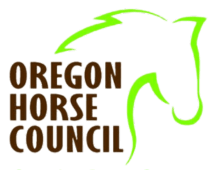
On July 16, a group of people in Central Oregon from all walks of life coordinated to save a trail horse, proving that pulling together can save lives.
Endurance rider Kris Olin and two friends were trail riding, Kris aboard Dixie, her 24-year-old Arabian who had logged more than 2,000 miles during her endurance career. They came to the Deschutes River and looked for a likely spot where they could water the horses.
“It looked like solid ground,” said Olin. “The water appeared to be shallow. We took a step or two in, and as soon as we did, we went down about three feet.”
Olin was able to dismount Dixie safely, but the mare became stuck in mud and water up to her back and could not extricate herself. The women knew they needed help, and they called Kate Beardsley, who rescues horses in all situations through the nonprofit Mustangs To The Rescue.
Beardsley, who lives in Bend, Oregon, is trained and experienced in both Search and Rescue and Technical Large Animal Emergency Rescue (TLAER). She has brought TLAER practitioner and The Horse: Your Guide to Equine Health Care contributor Rebecca (Gimenez) Husted, PhD, to the Mustang To The Rescue farm to teach the system.

“I got the call about 20 minutes after it happened,” said Beardsley.
Calling promptly was key to the successful rescue, even with Beardsley 40 miles away. She asked questions that allowed her to decide what equipment to load, which she put into her horse trailer to save the time of unhitching the rig.
En route Beardsley picked up her colleague, Laura Robson, and Cassee Terry, DVM, of the Redmond Veterinary Clinic, who is an experienced endurance ride veterinarian. Meanwhile, per Beardsley’s instructions, the three trail riders gathered help.
Beardsley and some of the makeshift team, including two men from the Redmond Fire Department and two men from the local road department, trekked on foot about a half-mile from the road to where Dixie was stuck. People arrived from the local Pet Evacuation Team, along with hikers and even a couple of people who had been tubing down the river.
Beardsley brought her equipment to the incident site on a glide and directed the rescue effort.
“The situation was stable,” Beardsley said. “The mare was not struggling at all. She was one foot from solid ground.”
Dixie remained calm and didn’t require sedation. She even ate the nearby grass while waiting patiently for the team to help her.
Beardsley had told Olin not to take off Dixie’s saddle.


“You’ve got to get straps around that horse’s body,” said Beardsley. “If the saddle is already on, you can tie the strap to the cinch of the saddle and pull the saddle off. And it (the saddle) is a guideline for your rescue straps. It’s really important that people don’t just strip the horse naked.”
Initially, Beardsley thought they would have to employ what she calls “a sideways drag” to pull Dixie out of the water sideways, and she rigged Dixie for that procedure. However, as Beardsley and Terry began helping Dixie, the mare was able to get weight on all four feet.

“Our tactic changed, and we needed to rig for a forward assist,” said Beardsley.
They adjusted their equipment appropriately. Beardsley said that with a forward assist, the horse first has to act like it wants to move forward.
“A lot of people pull on their heads,” said Beardsley. “If your horse is stuck, do not pull on their heads. You are only making things worse.”
When Dixie made a movement, Beardsley directed the team as to when and on which straps to pull.
“Boy, did they pull, and out she came,” said Beardsley. “The teamwork was beautiful.”

Dixie survived without any ill effects, even able to be led back to the road. Beardsley said it was lucky that her head was never submerged, avoiding the possible complication of pneumonia.
Beardsley complimented all the helpers, starting with the three trail riders, who did exactly what was needed to get help for the horse.
“They made such good decisions,” said Beardsley. “We had an amazing array of help come from the community.”
Olin was grateful to everyone who helped save her horse, especially Beardsley.
“She orchestrated the whole rescue effort,” said Olin. “She had the equipment; she had the knowledge; she had the expertise; she had the experience doing this type of thing.”
Article provided by The Horse: https://thehorse.com/190663/riverside-rescue-pulling-a-mare-to-safety-on-the-deschutes/?utm_medium=Health+enews&utm_source=Newsletter
Note from the Oregon Horse Council: “THIS IS THE EXACT SCENARIO THAT WE TRAIN PEOPLE FOR ACROSS OREGON. OHC IS THE PRIMARY HOST OF OREGON’S TECHNICAL LARGE ANIMAL EMERGENCY RESCUE COURSES WITH DR. REBECCA HUSTED. PLEASE VISIT OUR TLAER PAGE FOR MORE INFORMATION AND UPCOMING CLASSES”

The Oregon Horse Council is a 501(c)(6) nonprofit that works to strengthen, connect, and represent Oregon’s equine industry.
